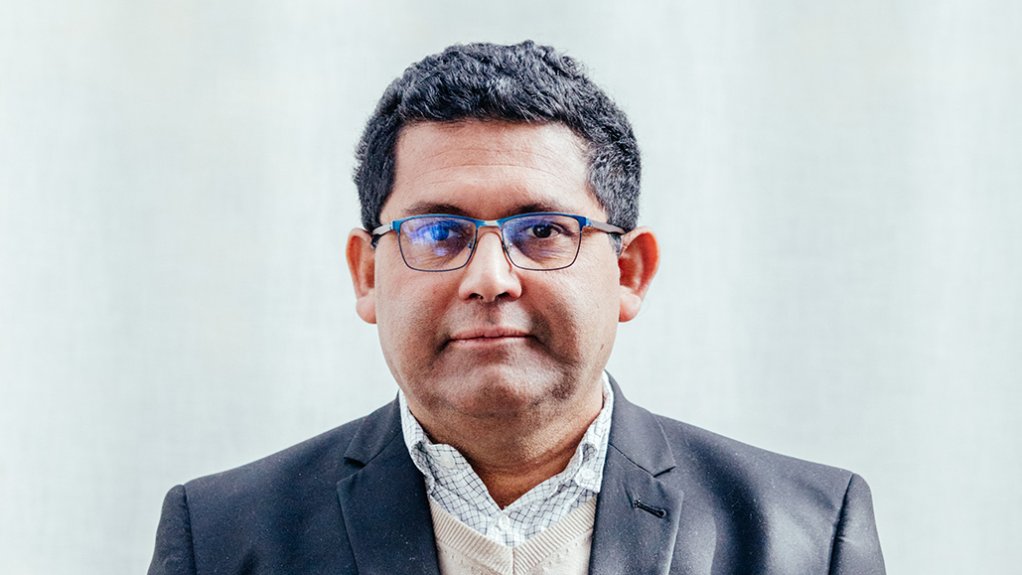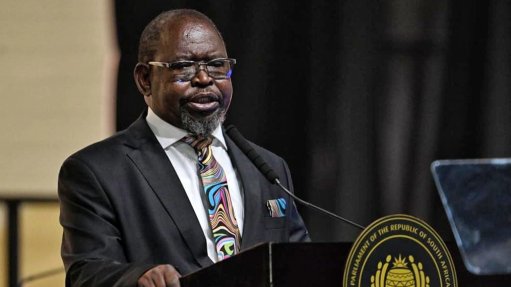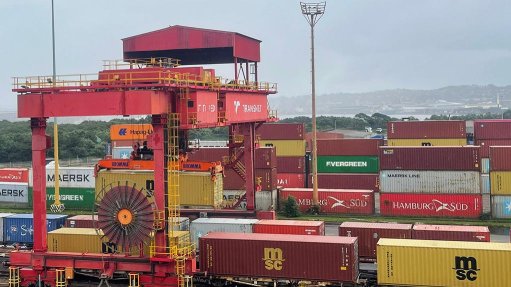New Saliem Fakir book highlights inextricable link between climate, energy transition and development
Climate change is not only an environmental issue; rather, economic and social issues are at the core of the energy transition the world and Africa are grappling with now and, if these issues are not dealt with, the transition to low-carbon energy will fail.
The new book by development research organisation the African Climate Foundation (ACF) executive director Saliem Fakir Navigating Africa’s Climate Development Nexus emphasises that bringing development and climate into the conversation is fundamentally important, Presidential Climate Commission deputy chairperson Dr Crispian Olver has said.
During the book’s launch, in Johannesburg, on August 15, he added that the book brought a deep and wide range of ideas and discourses to the debate about development and climate change.
“We see in the book that Saliem has training in philosophy and economics. The strength of the book is that it shows the thinking of someone who also has experience in trying to shift these issues confronting development from an academic debate to practice. He reflects a lot in the book of how technology is impacting on the processes of African development,” said research centre Southern Centre for Inequality Studies director Professor Imraan Valodia.
Reflecting on the work of Nobel prize winning economist W Arthur Lewis and its impact on development economics, Valodia said that, while brilliant, Lewis did not consider the planetary boundary in his discourse.
“The challenge for Africa is that, if we take the route to development that the West did and China most recently, then we will cross this planetary boundary. A lot of reflections in the book look at what the implications of this are.
“However, Saliem offers hope that, by managing this boundary with the correct set of economic policies, this might be an opportunity for Africa,” he said.
The book showed that the structural changes to move from fossil-fuel-based economies to cleaner and greener ones were grounded in messy political and practical considerations. It emphasised that the climate agenda could not be separated from the development agenda, said Just Energy Transition unit in the Presidency financing manager Neil Cole.
“This means South Africa and Africa must avoid viewing the energy transition in a vacuum, and that each gigawatt of coal power that is replaced is linked to jobs and industries created and livelihoods protected.
“If we lose sight of this balance, the transition will lose legitimacy and political traction,” he said.
“The approach climate activists want Africa to take to tackle climate change does not work well owing to the underlying political economy. Development issues are more fundamental than climate issues and the question is how we can align climate investment in new technologies, focused in key sectors,” Fakir told those attending the launch.
The reason he started working in the ACF was to develop a better understanding of the issues confronting the continent, he said.
“Our work has increasingly shown that, without economic resilience, economies cannot deal with external shocks, whether these are financial, trade-linked, climatic or pandemic.”
The reason African economies do not have economic resilience is not solely owing to the capture of portions of the State by elites, aided and abetted by partners often in the developed world, but is also a combination of post-colonial structures continuing, the financialisation of the resource sectors and the lack of capital accumulation in Africa's economies.
“If African countries want to pursue something, such as building renewable-energy infrastructure, then they must borrow money from elsewhere and import the equipment while having weak national fiscus. The question of economic resilience being key to climate resilience is something that I wanted to raise in the development conversation.
“If we take climate action, what are we trying to change? The tactics Africa takes may not work, and then what should it do?” he asked.
“How will reality bounce back our plans and how can we make adjustments on the journey and further respond to the barriers facing development? These are some of the underlying questions that we are trying to solve for climate and development,” Fakir said.
Article Enquiry
Email Article
Save Article
Feedback
To advertise email advertising@creamermedia.co.za or click here
Press Office
Announcements
What's On
Subscribe to improve your user experience...
Option 1 (equivalent of R125 a month):
Receive a weekly copy of Creamer Media's Engineering News & Mining Weekly magazine
(print copy for those in South Africa and e-magazine for those outside of South Africa)
Receive daily email newsletters
Access to full search results
Access archive of magazine back copies
Access to Projects in Progress
Access to ONE Research Report of your choice in PDF format
Option 2 (equivalent of R375 a month):
All benefits from Option 1
PLUS
Access to Creamer Media's Research Channel Africa for ALL Research Reports, in PDF format, on various industrial and mining sectors
including Electricity; Water; Energy Transition; Hydrogen; Roads, Rail and Ports; Coal; Gold; Platinum; Battery Metals; etc.
Already a subscriber?
Forgotten your password?
Receive weekly copy of Creamer Media's Engineering News & Mining Weekly magazine (print copy for those in South Africa and e-magazine for those outside of South Africa)
➕
Recieve daily email newsletters
➕
Access to full search results
➕
Access archive of magazine back copies
➕
Access to Projects in Progress
➕
Access to ONE Research Report of your choice in PDF format
RESEARCH CHANNEL AFRICA
R4500 (equivalent of R375 a month)
SUBSCRIBEAll benefits from Option 1
➕
Access to Creamer Media's Research Channel Africa for ALL Research Reports on various industrial and mining sectors, in PDF format, including on:
Electricity
➕
Water
➕
Energy Transition
➕
Hydrogen
➕
Roads, Rail and Ports
➕
Coal
➕
Gold
➕
Platinum
➕
Battery Metals
➕
etc.
Receive all benefits from Option 1 or Option 2 delivered to numerous people at your company
➕
Multiple User names and Passwords for simultaneous log-ins
➕
Intranet integration access to all in your organisation




















